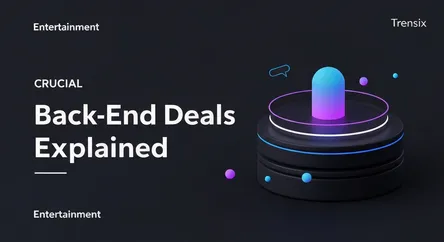Entertainment
Back-End Deals Explained

Discover how back-end deals work in Hollywood. Learn about profit participation and how A-list stars can earn millions after a film's release.
What is it?
A back-end deal, or profit participation, is a contract in showbiz where talent (like actors or directors) receives a percentage of a project's profits in addition to, or in lieu of, an upfront salary. These deals are typically based on 'gross points' (a share of revenue) or 'net points' (a share of profit after all costs are deducted). Gross participation is rare and reserved for A-list stars, as 'net' profits are notoriously difficult to realize due to studio accounting practices.
Why is it trending?
Back-end deals are a constant topic when blockbuster films shatter box office records, leading to massive payouts for stars. The conversation has intensified with the shift to streaming. Lacking a traditional box office, streamers now offer huge upfront salaries to compensate talent for the loss of potential back-end earnings. High-profile negotiations and legal battles over compensation for streaming releases consistently keep these financial arrangements in the headlines.
How does it affect people?
For top-tier talent, a successful back-end deal can mean a career-defining payday, like Tom Cruise's reported $100M+ for 'Top Gun: Maverick'. For others, it's a gamble that may not pay off, especially with 'net' deals. It fundamentally shapes how films are financed and how talent is valued, influencing negotiations and sometimes leading to disputes that highlight the complex and often opaque financial workings of Hollywood.